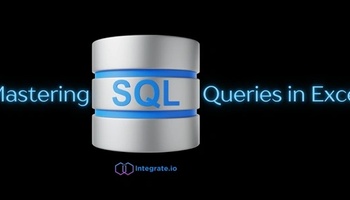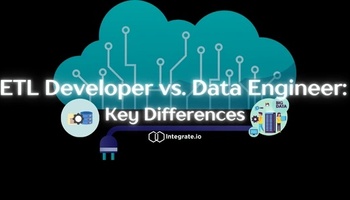Every business wants to stay agile. They invest in analytics to learn about their customers and their internal state, and they use these insights to make bold and innovative decisions. But then they run into a common problem: how to put those decisions into action.
This is where a solutions analyst comes in. These multi-talented creative thinkers will look at the current state of play and identify the smartest path forward. They’re trailblazers, and they’re an essential component of a future-facing organization.
The solutions analyst is an in-demand role right now as companies look for people to help them navigate through uncertain times. Here's everything you need to know to determine whether this role may be of interest to you.
What is a Solutions Analyst?
A solutions analyst is part-business analyst, part-systems analyst. A solutions analyst will take a holistic view of any project, the way a business analyst would do. They’ll start by looking at processes and trying to identify potential improvements that can help to deliver organizational goals.
And like a systems analyst, the solutions analyst will roll up their sleeves and get involved in the tech infrastructure. They might review code, examine database structures, and look at system integrations. If the project requires some coding, the analyst will work with developers to create what’s needed.
The big difference is that solution analysts focus on specific business needs. Leaders might have identified something that’s missing, like combining data sources or offering new functionality to users. Solution analysts will work on a solution to that problem, such as implementing a data pipeline or building a user-facing app.
The main duties of a solutions analyst are:
- Talk to stakeholders and develop a functional requirements specification
- Analyze and map all relevant business processes and IT infrastructure
- Research any rules that might impact solution delivery, such as compliance, data governance, or organizational mandates.
- Make recommendations for solutions that deliver organizational goals
- Assist in the design, development, and testing of solutions
- Oversee QA and deployment
- Report to stakeholders and senior IT leaders throughout the project lifecycle
Where Does a Solutions Analyst Work?
Solutions analysts usually work on a per-project basis, so they go wherever they’re needed. It’s one of the most exciting things about the role – it gives you a chance to move around within the organization and work with people from every department.
Many solutions analysts are part of a larger solutions team. Analysts are overseen by a solution architect who works with the IT director or CISO to develop a big-picture strategic approach to solutions development. In this structure, the analyst will work alongside developers, security experts, and UX specialists in collaboration to provide a rapid response to business needs.
Related Reading: What is a Solution Architect?
Solutions analysts might also work in a consulting capacity with external clients. For example, suppose a business needs help integrating with a new platform or delivering services to a client. In that case, a solutions analyst can drop in and help them out.
What Skills Do You Need to be a Solutions Analyst?
The solutions analyst is a multi-skilled role. You need to have outstanding tech skills, a keen insight into the business side of things, and a dash of project management experience. If you’re thinking of applying for this kind of role, here’s what you’ll need on your resume:
Relevant Education
Most employers look for a degree in a relevant discipline. This can be a tech degree, such as computer science or engineering, or a degree in a business subject.
Software Development
Each company will try to hire people who can work with their tech stack, so they may look for candidates with experience in languages like Java, C# or C++. There’s also a demand for scripting languages like JavaScript and Python, and it helps if you know how to work with APIs.
Coding experience is always an asset, but you should at least have a good understanding of the main principles, such as object-oriented programming. It also helps to have experience with development methodologies like Agile and DevOps.
Database Design
Data is an essential component of any solution you design. Any database experience will help your resume stand out. Your experience could involve deploying databases, creating database schemas, working with SQL queries, or managing database security.
You’ll also need to understand the complexities of modern data infrastructures. Many companies use a hybrid of on-premise and cloud systems or even a multi-cloud approach. This isn’t just a tech challenge. It also raises issues of compliance, security, performance, and availability, all of which you’ll need to understand.
Communication
Most analyst work involves communication. You’ll start each project by talking to stakeholders, fleshing out their requirements, and getting an agreement on the project’s scope. During the project life cycle, you’ll need to prepare reports, charts, and dashboards that allow stakeholders to keep an eye on your progress.
You’ll also find yourself communicating with developers, consultants, and other colleagues working on the solution project. You might also have to interact with third parties, such as service providers, so you need to have excellent verbal and written communication skills.
Process Modeling
Solutions analysts have to work within the existing infrastructure. That means mapping out the existing business processes and seeing how they interact with the technology already in place.
Analysts typically have a big toolbox to help manage this, including tools from Lean, Six Sigma, or your preferred project management strategy. You can also use languages like UML to help model IT processes. You’ll need to be familiar with the appropriate tools for process modeling, such as Microsoft Visio.
Critical and Creative Thinking
Analysts are problem solvers. Your job is to take a close look at the current state of play and use your critical thinking skills to determine the most appropriate next step. Ideally, your resume should show that you have professional experience with answering tough questions.
Solution analysts also need to be creative, as they’re under continuous pressure to innovate. Use your resume to talk about any bright ideas you’ve had. This can be anything, from an app or website you’ve built in your spare time, to an initiative you launched at your last job.
Project Management
Even if you’re not the official project manager, you’ll still have a lot of project management responsibilities. You’ll need to work with stakeholders, you’ll have to coordinate developers, and you’ll need to communicate to everyone all the time.
Formal project management experience is a big plus, even if it's on a single project with one deliverable. The important thing is that you know how to guide a project from initiation to delivery. Project management can also help you progress on your career path beyond the solutions analyst stage.
Solutions Analyst Salary and Career Path
The average starting salary for a solutions analyst is around $77,000, with an upper limit in the region of $113,000. There’s a lot of regional variation, with higher salaries available in bigger cities.
Your future career path depends on your focus. Should you choose to stay in solutions, you could move on to become a Solutions Architect. The Solutions Architect role involves a lot more direct interaction with senior management. As an architect, you'll work with IT directors and CIOs to develop long-term IT strategies that deliver corporate goals. You'll also oversee a team of developers and analysts who will help to put your plans into effect.
If you’re IT-oriented, you might focus on the development side and become a dev team leader. Alternatively, you might focus on project management or become a senior business analyst.
Solutions analyst is also a great pathway into consultancy. You’ll develop most of the skills and insights that people expect from consultants, so you can start delivering for clients right away.
Integrate.io: The Secret Weapon of Solutions Analysts
Every solution involves data, which means that every solution analyst has to think about data flows. Often, you’ll need to integrate with existing data sources so that you have access to vital information. You may also need to think about ways to send data from your solution to a central repository so that the analytics team has access.
The simplest solution? A cloud-based ETL like Integrate.io.
Integrate.io allows you to integrate with over a hundred data sources automatically. It’s no-code, so you simply use the graphical interface to design your data flows. Once Integrate.io is running, it acts as a data pipeline, connecting your production systems to your data warehouse.
Want to see for yourself? Schedule an intro call with our support team and see how Integrate.io can be part of your solutions.










